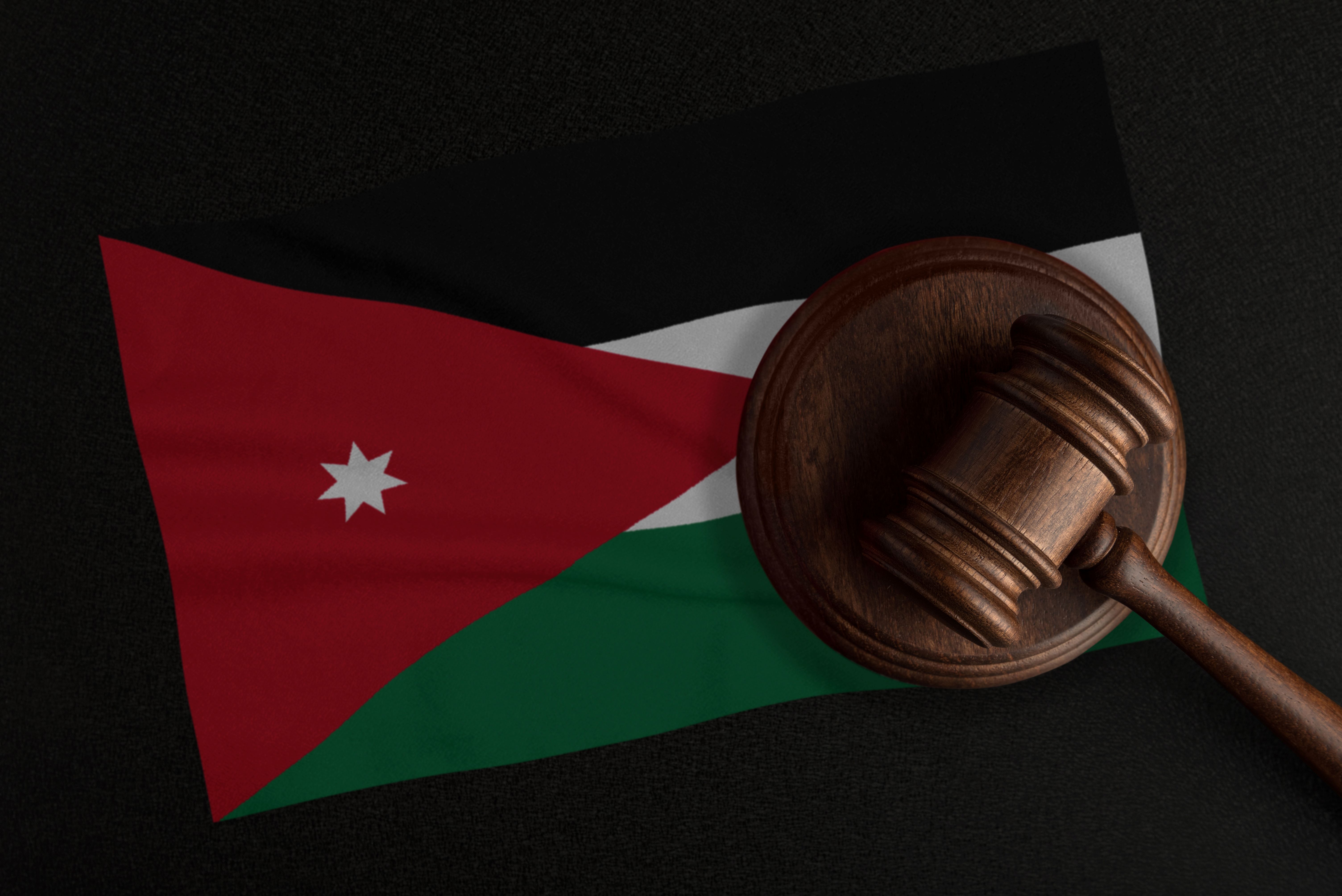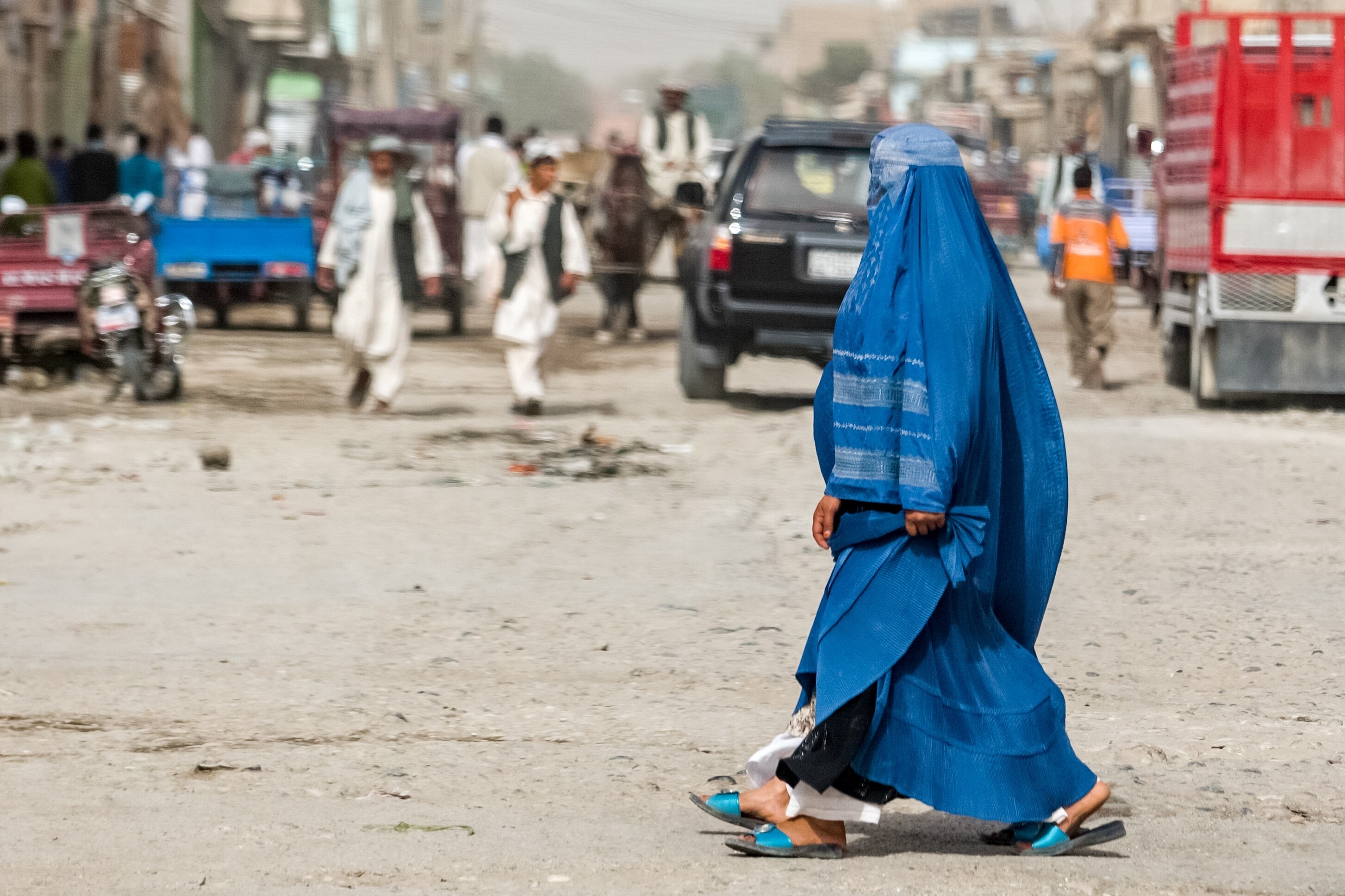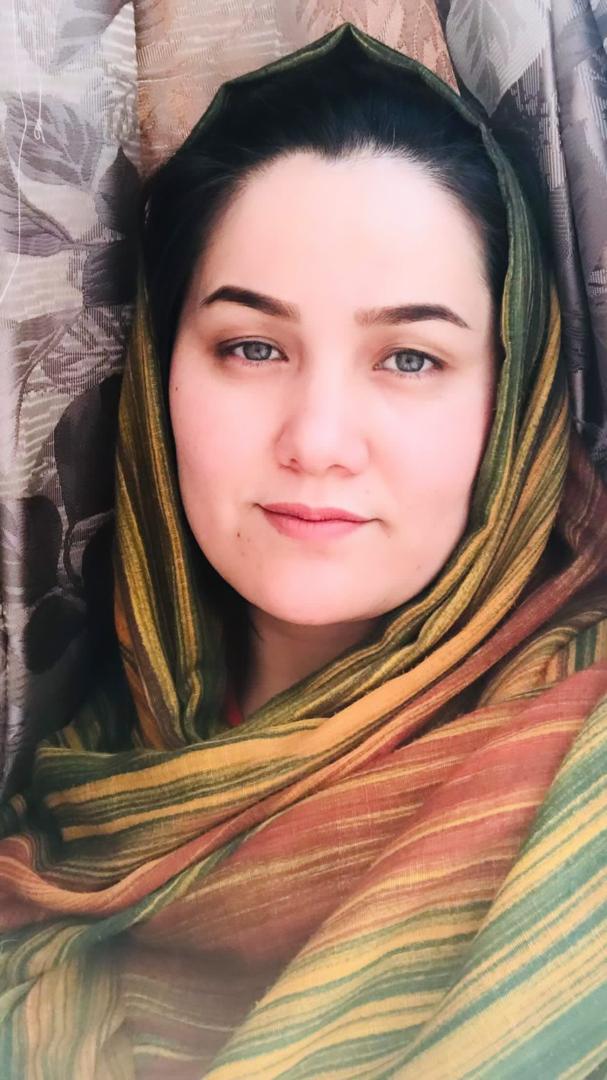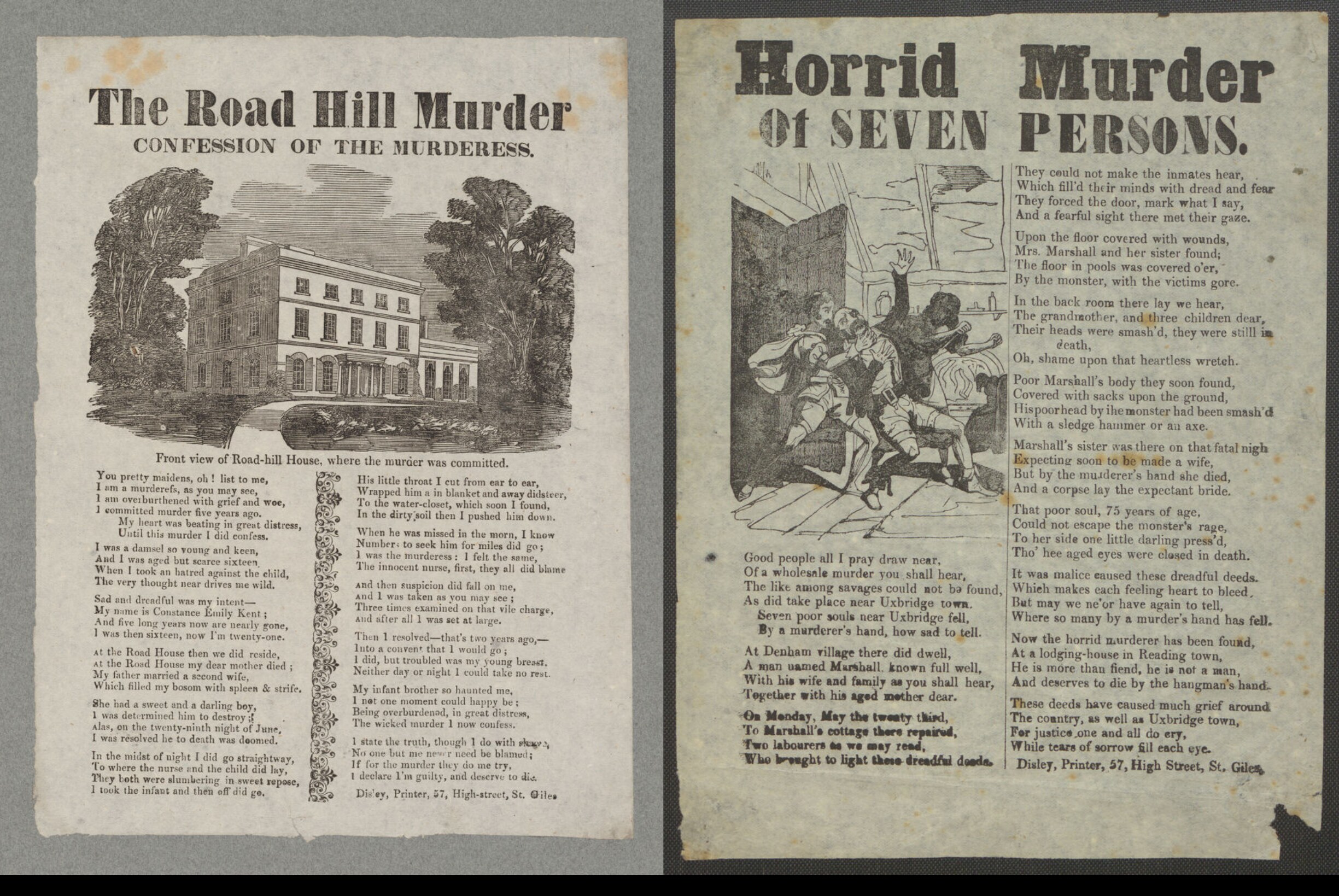Freedom of speech, expression, and the press in Jordan is facing a concerning turning point following the enforcement of the new Cybercrime Law. This shift coincides with the widespread sympathy and public outrage in Jordan over Israel's ongoing genocidal war against Gaza.
This turning point is reflected in the arrest and imprisonment of several journalists and media workers, including Khaireddin Al-Jabari, Israa Al-Sheikh, Abdul-Jabbar Zaitoun, and Ahmed Mohsen (who were later released). In addition, several human rights activists and social media figures have been targeted. One of the most notable cases is the upholding of a one-year prison sentence against journalist Hiba Abu Taha by the Court of First Instance, after she published an article critical of the government’s policy on intercepting Iranian drones over Jordan en route to Israel (and not, as some media outlets falsely reported, for an investigative piece on the “land bridge”). Abu Taha has become the first Jordanian journalist to receive such a harsh sentence under the new Cybercrime Law of 2023.
Similarly, writer Ahmed Hassan Al-Zoubi has begun serving a one-year prison sentence under the old Cybercrime Law of 2015 due to a social media post. Moreover, the authorities have shut down the offices of Yarmouk TV in Amman, claiming that the channel was broadcasting without a license—a claim the channel’s management denies.
The crackdown on freedom of speech and expression—through arrests, imprisonment, or the closure of media institutions—makes the exercise of civil and political rights fraught with fear. It enforces silence at a time when the country desperately needs a diversity of opinions and ideas, especially with the growing threat posed by the Israeli far-right to Jordan amidst Israel’s war on Palestine.
In this context, it becomes a national duty for intellectuals and thinkers to critique government plans, policies, and actions, to expose their flaws, and to advocate for better alternatives in the pursuit of the public good. [1] For journalists and media outlets, this is not only a professional obligation but also a moral necessity to serve the public. It safeguards the people's right to access information, evaluate alternatives, and make informed decisions, as they are the ultimate source of authority.
The crackdown on freedom of speech and expression—through arrests, imprisonment, or the closure of media institutions—makes the exercise of civil and political rights fraught with fear. It enforces silence at a time when the country desperately needs a diversity of opinions and ideas, especially with the growing threat posed by the Israeli far-right to Jordan amidst Israel’s war on Palestine.
The detention of any journalist, blogger, or activist for exercising their right to express opinions about Gaza or criticize public policies must be condemned and protested. No one should face assault, arbitrary detention, imprisonment, torture, threats, intimidation, or psychological harassment for practicing these rights. Such actions cannot be justified by law or by citing exceptions in international human rights law. [2]
International standards prohibit imposing restrictions on freedom of opinion and expression unless three conditions are met: the restrictions must be clearly established by law, they must be necessary and narrowly defined, and they must serve specific, legitimate purposes in a democratic society. [3] When authorities violate these standards, they are in breach of the international agreements and treaties ratified by Jordan, including the International Covenant on Civil and Political Rights.
In this article, we examine constitutional law and its legislative and judicial interpretations concerning the protection of freedom of speech, expression, the press, and publishing. We also assess the extent to which the practices of the authorities align with constitutional provisions. Article 15 of the Jordanian Constitution states:
1- The State guarantees freedom of opinion, and every Jordanian has the right to express their opinion freely through speech, writing, photography, and other means of expression, provided they do not exceed the limits of the law.
2-...
3- The State guarantees the freedom of the press, printing, publishing, and media within the confines of the law.
4- Newspapers and media outlets may not be suspended or have their licenses revoked except by a judicial order in accordance with the law.
It is important to note that the failure to respect human rights in authoritarian regimes is not due to the absence or weakness of constitutional texts, nor their ambiguity. Rather, it stems from factors identified by constitutional law professor Hassan Tariq at Mohammed V University. These include circumventing constitutional values, stripping them of their substance through unconstitutional legislation, and expanding exceptions to general rules until they become the norm. Additionally, political conditions are exploited as institutions bypass the constitution, undermine the rule of law, and evade accountability [4], leading to the overreach of the executive branch over the legislative and judicial branches. This results in the prioritisation of security solutions over political and human rights-based approaches to governance.
The Meaning of Freedom of Opinion and Expression
Freedom of opinion is an absolute right, a natural and inherent human freedom. Opinion is a mental process that occurs within an individual’s mind as an internal matter rooted in one’s conscience. [5] Therefore, freedom of opinion does not require legislation to ensure its protection, nor can it be subject to surveillance as long as it remains confined within the mind of its holder, as noted by legal expert Adel Al-Hayari. [6] Thus, personal freedoms—even when declared by political authority—are derived from the inherent human nature of the individual. "They are not privileges to be granted or withdrawn; they are human values safeguarded by the constitution." [7]
However, how can freedom of opinion truly exist if there are restrictions on the right to assembly, access to information, and the free flow of ideas? These restrictions might include banning seminars, prohibiting the publication of books, blocking websites and apps, or shutting down TV stations. Freedom of opinion—even if it remains confined to one’s mind and conscience—cannot be exercised without the consolidation of relevant human rights.
Article 19 of the International Covenant on Civil and Political Rights requires the protection of an individual’s right to hold opinions without interference. This right cannot be subject to any exceptions or limitations, including the right to change one’s opinion at any time and for any reason chosen freely. Moreover, individuals cannot be harassed or penalised for their actual, perceived, or presumed opinions—whether those opinions are political, scientific, historical, moral, or religious. [8]
In its General Comment No. 34 from 2011, the UN Human Rights Committee defines the right to freedom of expression, as stated in Article 19 of the Covenant, as "the freedom to seek, receive, and impart information and ideas of all kinds, regardless of borders, either orally, in writing, in print, in the form of art, or through any other media." This includes political discourse, personal commentary, discussion of public affairs, opinion polls, human rights discussions, journalism, cultural and artistic expression, teaching, religious discourse, and commercial advertising. To ensure freedom of opinion and expression, a free, independent press and media, unencumbered by censorship or restrictions, form the cornerstone of a democratic society. [9]
Freedom of expression is "the original freedom within which open dialogue takes place, without which the right to assembly loses its meaning and becomes futile. With it, individuals are free to take any stance without fear, hesitation, or deviation from the path of truth," as stated in the ruling of the Egyptian Supreme Constitutional Court in Case No. 6 of 15, and referenced by the Amman Court of First Instance in its ruling No. 765/2010. [10]
The State’s Guarantee of Freedom of Opinion and Expression
In 2010, writer Muwaffaq Mahadin and political activist Sufian Al-Tal were referred to trial by the public prosecutor for their criticism of Jordan’s military involvement in Afghanistan at the time. Their trial concluded with a verdict of non-liability, which was seen as a victory for freedom of the press, publication, and expression. In this context, we recall the famous defense presented by lawyer Naim Al-Madani on behalf of Mahadin and Al-Tal. In his argument, he explained the phrase "the state guarantees freedom of opinion and expression" as stated in the constitution, noting that it "means an unrestricted and unqualified guarantee, and that the role of the law in this phrase is to regulate this freedom in a way that does not allow any restriction, limitation, confiscation, or infringement of this right in any form." He further emphasized that the constitution uses the term state rather than government, underscoring that all three branches of government—the legislative in its lawmaking role, the executive in implementing laws, and the judiciary in applying laws to disputes—are bound by this guarantee. Failure to uphold this guarantee would constitute a violation of the constitution. [11]
In 2010, writer Muwaffaq Mahadin and political activist Sufian Al-Tal were referred to trial by the public prosecutor for their criticism of Jordan’s military involvement in Afghanistan at the time. Their trial concluded with a verdict of non-liability, which was seen as a victory for freedom of the press, publication, and expression.
The Amman Court of First Instance, in its ruling, explained the state’s guarantee of freedom, stating: "When the constitutional legislator uses the word state at the beginning of Article 15, paragraph 1 of the constitution, it does not refer to the government (the executive authority), but to the state in all its branches. The state’s obligation must be positive, as the use of the word guarantee implies a positive duty. The root of the word guarantee (in Arabic, kafala) means to ensure or commit, which indicates that the state, with all its institutions and authorities, bears the responsibility to provide full protection for freedom of opinion and expression, as long as it does not harm the public interest." [12]
Constitutional scholar Mohammed Al-Hammouri, in his testimony in the same case, explained the meaning of the state’s guarantee, saying: "The word guarantee means that the state and its institutions must open all doors for anyone with an opinion to express it, particularly when that opinion is in the interest of the nation and for the protection of its people. Article 6 of the constitution states that ‘the state guarantees the right to tranquility,’ and this right implies that the state must intervene positively to ensure that no citizen feels oppressed, that they can sleep peacefully knowing their future is secure, that their opinion will not be distorted, and that no one will question their loyalty to the nation or undermine their patriotism." [13]
Guaranteeing the Plurality of Opinions
Article 15, paragraph 1 of the Jordanian Constitution states that "the state guarantees freedom of opinion, and every Jordanian has the right to freely express their opinion through speech, writing, photography, and other means of expression." In his testimony during the trial of Mahadin and Al-Tal, Professor Yahya Shuqair explained that the Jordanian constitutional legislator intended the phrase "every Jordanian" to ensure the plurality of opinions in Jordan and to prevent the Jordanian people from being united under a single opinion. It also aimed to prevent any government from controlling the public mind of Jordanians, allowing every individual to freely express their opinion. Shuqair noted, "There is no such thing as a wrong opinion in this world, as every person expresses their own personal viewpoint." [14]
The Egyptian Supreme Constitutional Court, in interpreting the constitutional guarantee of the plurality of opinions, stated: "The constitution, by safeguarding freedom of expression, does not seek to create a general consensus, but rather aims to ensure the plurality of opinions, grounded in neutral information, so that the light of truth illuminates every action and determines the course of every decision." [15]
Jordanian judicial precedents have established that the Press and Publications Law requires journalists to make an effort to seek the truth when publishing a story, but it does not mandate that the material must always reflect absolute truth or reality.
In one of its rulings, the Egyptian Supreme Constitutional Court further defended this principle, stating: "Freedom of expression—especially when its pulse is strong and its impact is wide—is the path to building democratic systems where decision-making centers are numerous, where tolerance for opponents is essential, and where responsibility towards citizens is upheld. Such systems reject any restriction that undermines their credibility, respond to the desire for change through persuasion, and offer alternative solutions through dialogue for citizens to choose the best among them, regardless of the content. Therefore, different opinions cannot be suppressed, their means of expression cannot be confiscated, and their goals cannot be separated from their essence, even if others disagree with them, oppose them, or believe they contradict certain values or pose risks that they claim, without any clear justification for those claims." [16]
The court also noted that "the constructive nature of criticism does not necessarily require dissecting every phrase in a publication and evaluating it—isolated from its context—using rigid standards. What one person may consider correct in a specific detail may be seen as entirely wrong by another. It is clear that those defending their opinions and beliefs often resort to exaggeration. If freedom of expression is to thrive in the space it cannot survive without, a degree of excess must be tolerated.” [17]
Guaranteeing the Protection of Harsh and "Inaccurate" Opinions
Jordanian judicial precedents have established that the Press and Publications Law requires journalists to make an effort to seek the truth when publishing a story, but it does not mandate that the material must always reflect absolute truth or reality. The role of journalism is to expose errors and violations on issues that matter to the public and society, which often requires investigative efforts and information gathering. [18] Therefore, not every piece of inaccurate information published warrants punishment, as long as the journalist has made reasonable efforts to verify the facts. Furthermore, the journalist’s good faith in addressing the issue and focusing on the work itself in service of the public interest are also key considerations.
General principles of criminal intent in press and publication cases hold that it is sufficient for a journalist to believe in the accuracy of an event, even if it later turns out to be false, as long as that belief is based on reasonable justifications and due diligence in the given circumstances. The foundation of permissible criticism lies in the journalist’s efforts to serve the public interest. [19] Some experts provide the example of a publisher relying on an event reported by the media, with no subsequent retraction, which could be considered a valid defense even if the published content contains defamatory remarks. [20]
Not every piece of inaccurate information published warrants punishment, as long as the journalist has made reasonable efforts to verify the facts.
The Egyptian Supreme Constitutional Court affirmed that "freedom of expression has its greatest impact when connected to public affairs, as it allows for the examination of shortcomings and the correction of flaws. An individual’s right to express their opinion is not contingent on the accuracy of their views, nor does it need to align with the prevailing trends in a particular community or serve a clear scientific purpose. The constitution’s guarantee of freedom of expression is meant to prevent the public authorities from imposing their control over public opinion, ensuring that the authorities’ standards do not become the benchmark for evaluating opinions nor an obstacle to their flow."
Additionally, the Egyptian Supreme Constitutional Court ruled that even sharp or harsh criticism is protected: "Excess in some opinions should not justify impeding their circulation. The constitutional protection of freedom of expression, particularly in the realm of criticizing public officials, demands full access to facts related to public affairs and the necessary information to reveal them. There should be no barriers to this, even in the name of protecting reputations... Ultimately, obstructing the free flow of information undermines the right to be informed. Criticizing public figures by reviewing and assessing their behavior is a right derived from the people's oversight, born of the vigilance of citizens concerned with public matters, and denying this right means that only the most determined or bold individuals would dare to criticize. [21]
Freedom of Opinion and Expression in Public Affairs
The constitutional guarantee of freedom of opinion and expression allows for the criticism of a person’s political standing, as well as the questioning, discussion, and rejection of their actions, without this being considered defamation. This applies to the work of all national institutions—whether official, civic, or private—that provide public services. Such criticism cannot be regarded as an insult or a crime punishable by law. In a democratic system, with its inherent right to opposition, public scrutiny of politicians and leaders, the need for periodic elections, and the involvement of the public in governance, it is impossible to protect a person’s political reputation through criminal penalties. [22]
Additionally, "anyone who enters the political arena must be subject to scrutiny, review, criticism, and critique. The interests at stake in this field are too significant and dangerous to be given adequate protection while restricting voices and pens." [23]
The constitutional guarantee of freedom of opinion and expression allows for the criticism of a person’s political standing, as well as the questioning, discussion, and rejection of their actions, without this being considered defamation.
While the constitution guarantees "freedom of expression" in a broad and unrestricted sense, encompassing opinions across various political, economic, and social fields, it specifically prioritizes the protection of political opinions. This is due to their close connection to political life and the proper functioning of a democratic system. The constitutional guarantees of press freedom, its independence in fulfilling its mission, and the prohibition of censorship, warnings, suspensions, or administrative cancellations are primarily aimed at safeguarding political opinions, as freedom of the press is the cornerstone of freedom of opinion and thought. [24]
Deeming certain forms of expression offensive to public figures does not justify imposing penalties on the critic, even if these figures are protected by the International Covenant on Civil and Political Rights. This principle applies to all public figures, including those holding the highest political offices in the country. [25] As such, the permissibility of criticism "presumes that the critic is upholding a more important right than the victim’s right to honor and reputation." [26]
The UN committee responsible for interpreting the International Covenant on Civil and Political Rights has expressed concern over laws that protect heads of state and government from legitimate political criticism and opposition. These laws often use terms such as "insulting the king" or "offending the royal person," "insulting a public official," "disrespecting authorities," "disrespecting the flag and symbols," "defaming the head of state," or "protecting the honor of public officials." The committee has emphasized that laws should not impose harsher penalties based solely on the identity of the person being criticized and that states should not prohibit criticism of institutions such as the military or administrative apparatus. [27]
Many legal scholars view journalism through its relationship with public authorities. It occupies the attention of rulers and makes governance more challenging. According to Dr. Ameen Al-Adailah [28], any authority that does not encounter opposition will, at some point, become irresponsible in a moral sense.
The Supremacy of the Constitution and the Incompatibility of Certain Laws
In the landmark 2010 case of Mahadin and Al-Tal, the Amman Court of First Instance found that Article 118/2 of the Penal Code, which required prior approval for exercising freedom of expression, did not align with Article 15 of the constitution, which guarantees that freedom. The court held that, according to Article 15 of the Jordanian Constitution, "when issuing any legislation related to freedom of opinion and expression, the state must ensure that this legislation reinforces the constitutional principle and does not confiscate, undermine, or restrict this freedom in a way that contradicts the legislator’s intent to protect this fundamental human right. The state, as stipulated by Article 15 of the constitution, is required to enact laws that regulate the exercise of this freedom, but only to the extent that such regulation does not amount to imposing prior censorship on freedom of opinion and expression”. [29]
It should be emphasized that the phrase “within the limits of the law” means organizing rather than restricting rights. Constitutional and criminal jurisprudence has established that "the constitutionality of criminal provisions is governed by strict standards that pertain solely to them, with precise criteria aligned with their nature, and no other legal rules interfering in their application. The constitution elevates personal freedom as a fundamental right inherent to human nature, which cannot be separated from it. Therefore, it provides the most comprehensive protection, affirming its value without undermining the right to regulate it. Considering that criminal laws may impose severe restrictions on this freedom, either directly or indirectly, it is crucial that criminal provisions are not laden with multiple interpretations or vague expressions that encroach upon constitutionally established rights. Thus, the enforcement of criminal laws restricting personal freedom must be in accordance with constitutional legitimacy. [30]
On the Incarceration of Journalists
People have the right to agree with or disagree from those in power. This right should not be infringed upon, restricted, or compromised; it is fundamental to a just society governed by the rule of law, pluralism, and respect for human rights.
According to the interpretation of Article 15 of the constitution, imprisoning, detaining, or arresting individuals, including journalists, for their peaceful expressions—even if harsh—violates constitutional guarantees. Such actions instill fear and oppression, undermining the freedom of speech and expression. The Egyptian Supreme Constitutional Court has asserted that “convicting an individual of a crime imposes the most severe restrictions on personal freedom and threatens the right to life. These risks can only be mitigated through effective safeguards that balance the individual’s right to freedom with the community’s need to defend its essential interests. [31]
People have the right to agree with or disagree from those in power. This right should not be infringed upon, restricted, or compromised; it is fundamental to a just society governed by the rule of law, pluralism, and respect for human rights.
Respecting the constitution and its spirit is a hallmark of the rule of law, not of individuals. It is essential in a state where fear of authority diminishes and where the old adage that one should not confront or approach authority due to its unforgiving nature is broken. [32] The primary defenders of press freedom, freedom of expression, and solidarity with prisoners of conscience, such as Hiba Abu Taha and Ahmed Hassan Al-Zoubi, should be their fellow professionals, journalism associations, their unions, media institutions, and community leaders. They are advocating not only for constitutional respect and the protection of rights and freedoms but also for the honor and dignity of their profession, and ultimately, for themselves.
Jordan is on the cusp of a new parliamentary era and is in urgent need of a full commitment to respecting all citizens' rights and duties as outlined in the constitution. This includes a thorough review of all laws governing freedom of expression, the press, and publishing, ensuring they align with both the text and spirit of the constitution. It is crucial to open the public space, enforce a true separation of powers, strengthen judicial independence—the guardian of rights, freedoms, legality, and legitimacy—and build a genuine partnership with civil society. It is also necessary to abandon the old systems of patronage and paternalism, reverse actions and practices reminiscent of the pre-1989 climate, promote dialogue and diversity of opinions, and release prisoners of conscience. Doing so will uphold the dignity of the nation and its citizens, strengthen the state, and fortify its internal and external fronts amidst the ongoing war on Gaza and the Israeli growing aggression in the West Bank and East Jerusalem.
- Faris Hamed Abdulkareem, The Right to Criticism and Crimes of Expression: Standards for Distinguishing Between Permissible and Criminal Acts.
- General Comment No. 34, Human Rights Committee, see the link https://2u.pw/sPAQ2jV.
- Ahmed Al-Ghoul, Freedom of Opinion and Expression in International Covenants and Local Legislation, Palestinian Human Rights Organization, p. 27.
- Hassan Tarek, Constitutionality Post-2011 Explosions, p. 253.
- Hamdi Qubilat, The Limits of Freedom of Expression via Electronic Means in the Jordanian Constitution, Jordanian Journal of Law and Political Science, Vol. 10, No. 4, 2018, p. 190.
- Ibid.
- Ahmed Fathy Surour, Constitutional Protection of Rights and Freedoms, Dar Al-Shorouk, 2nd ed., 2000, p. 40.
- General Comment No. 34 of 2011, United Nations Human Rights Committee.
- Ibid.
- Decision No. 6 of 2015 by the Supreme Constitutional Court, which was cited by the Amman First Instance Court in its Decision No. 765/2010.
- The Argument of Attorney Naeem Al-Madani in the case of Mufeed Mohadeen and Sufian Al-Tal, in case No. 765/2010 before the Amman First Instance Court.
- Decision No. 765/2010 by the Amman First Instance Court.
- The Authority and the Dilemma of Freedom of Opinion and Expression, edited by Abdullah Al-Assaf, 1st ed., 2019, p. 209.
- Decision No. 765/2010 by the Amman Criminal Court. See The Authority and the Dilemma of Freedom of Opinion and Expression in Jordan, p. 212.
- Case No. 6 of 2015, Supreme Constitutional Court of Egypt, "Constitutionality" 1995.
- Decision No. 77 of 1998, Supreme Constitutional Court of Egypt, "Constitutionality".
- Decision No. 2782/2021 by the Jordanian Court of Cassation.
- Faris Hamed Abdulkareem, The Right to Criticism and Crimes of Expression: Standards for Distinguishing Between Permissible and Criminal Acts.
- Ibid
- Case No. 37 of 2011 before the Supreme Constitutional Court, "Constitutionality".
- The Crime of Defamation and Insult and the Right to Criticism, UNESCO Working Paper, p. 26.
- Ibid, p. 26.
- Case No. 44 of 2007 before the Supreme Constitutional Court, "Constitutionality".
- General Comment No. 34, Human Rights Committee, see the link https://2u.pw/sPAQ2jV.
- Faris Hamed Abdulkareem, The Right to Criticism and Crimes of Expression: Standards for Distinguishing Between Permissible and Criminal Acts.
- General Comment No. 34, Human Rights Committee, see the link https://2u.pw/sPAQ2jV.
- Bilal Abdullah Al-Awad, Constitutional Guarantees for Human Rights, unpublished Master's thesis, 2009/2010, p. 54.
- Decision No. 765/2010 by the Amman First Instance Court. See: The Authority and the Dilemma of Freedom of Opinion and Expression in Jordan, edited by Abdullah Al-Tal, 1st ed., 2019.
- Case No. 25 of 2016 before the Supreme Constitutional Court, "Constitutionality".
- Decision of the Egyptian Constitutional Court in Case No. 5 of 2015, Constitutional Case on May 20, 1995.
- Mohammad Al-Hammouri, Imprisoned Freedoms: Between Tyranny and Exploitation of Religion, Origins and Path to Redemption, Arab Foundation for Studies and Publishing, 1st ed., 2017, p. 195.













































